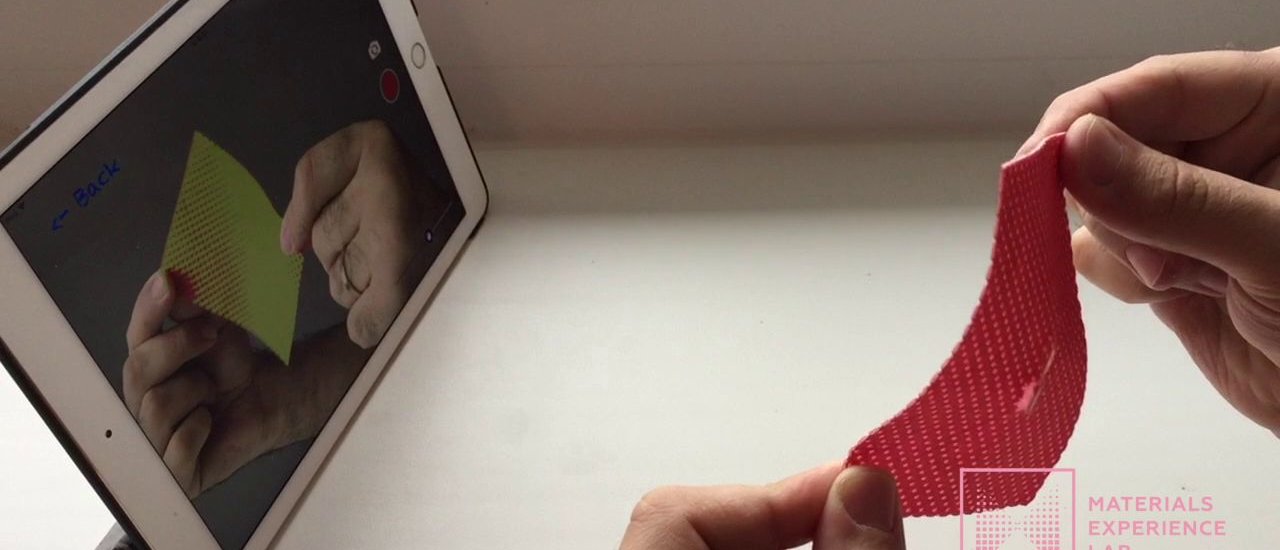In her PhD research, Bahareh Barati looked into the role of existing hybrid technologies, including Arduino platform, sensors and actuators in prototyping underdeveloped smart materials, specifically the LTM materials (composites of piezopolymer and thin-film OLED). To that aim, she has developed two versions of a hybrid simulator, enabling designers to explore the temporal form of performable luminescent materials early in concept development phases.
Touch4Light Simulator
To encourage an utmost exploitation of LTM’s functional and aesthetic capacities for design, a hybrid simulator, Touch4Light (T4L), was conceptualized and implemented.
The simulator, as part of a toolkit, aims to expand on the experiential capacities of the LTM materials, particularly in relation to its unanticipated affordances and temporal forms, which are difficult transfer in words and schematics. It uses Chroma keying, a technology commonly referred to as blue or green screen in moviemaking, to augment physical objects with dynamic videos. The dynamic light behavior is generated digitally (in Max MSP) based on the users' input through eight touch bottoms and are imposed on the color-marked areas of the physical probes, on a LCD screen, which steams the video captured by a webcam.
Touch4Light iPad App
To make the simulator more accessible to the designers and improve its adoption in the design process an app version of the tool was designed and implemented. The app is not available on the App Store.
